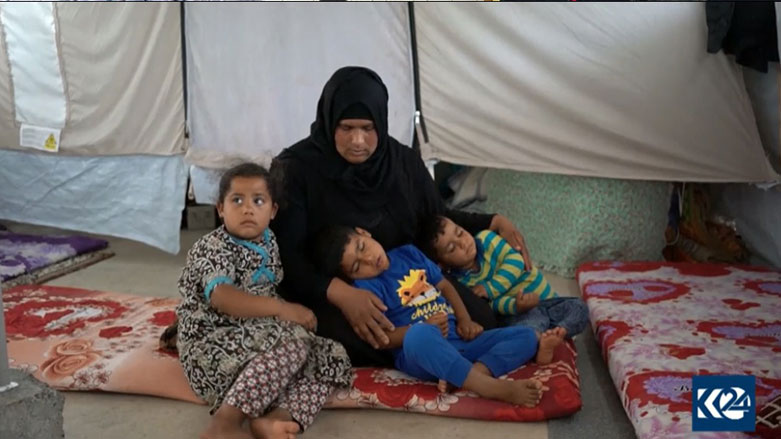Iraqi children born to ISIS parents live in dire medical conditions, labeled as future risks

ERBIL (Kurdistan 24) – Thousands of children born to women accused of Islamic State membership are stuck in camps in Iraq where they lack proper medical care and are without official documents, representatives at the Laylan Camp said on Thursday.
According to camp officials at Laylan, located in Kirkuk province, the children, along with their mothers, have contracted various diseases and have limited access to adequate medical aid. The children are also without proper documentation as Iraqi authorities confiscated the paperwork or their parents lost it.
“The medical care at the camp is not efficient to treat our children who suffer from certain sicknesses, and the security forces at the camp prevent us from seeking healthcare elsewhere,” Salima, one of the hundreds of women accused of Islamic State ties who live at Laylan, told Kurdistan 24.
She noted that authorities had denied them access to healthcare and proper documentation due to their alleged ties to the self-proclaimed Islamic State.
Related Article: Wives of ISIS fighters find camps safe haven, fear violence from Iraqis outside
Hussein Hub, one of the representatives at the Laylan camp, told Kurdistan 24 Iraqi security forces had confiscated documents from the mothers and their children which denies them access to hospitals outside of the facility.
“Some of the displaced people inside the camp are diagnosed with cancer,” Hud noted.
At the height of its insurgency in Iraq and neighboring Syria, the so-called Islamic State used children as spies and soldiers in suicide attacks, which is why some believe they pose a possible threat.
The Norwegian Refugee Council estimates a total of 45,000 children are being detained in the camps in Iraq, expressing concern for the future of the children who, in many cases, are victims of a situation beyond their will.
Editing by Karzan Sulaivany
